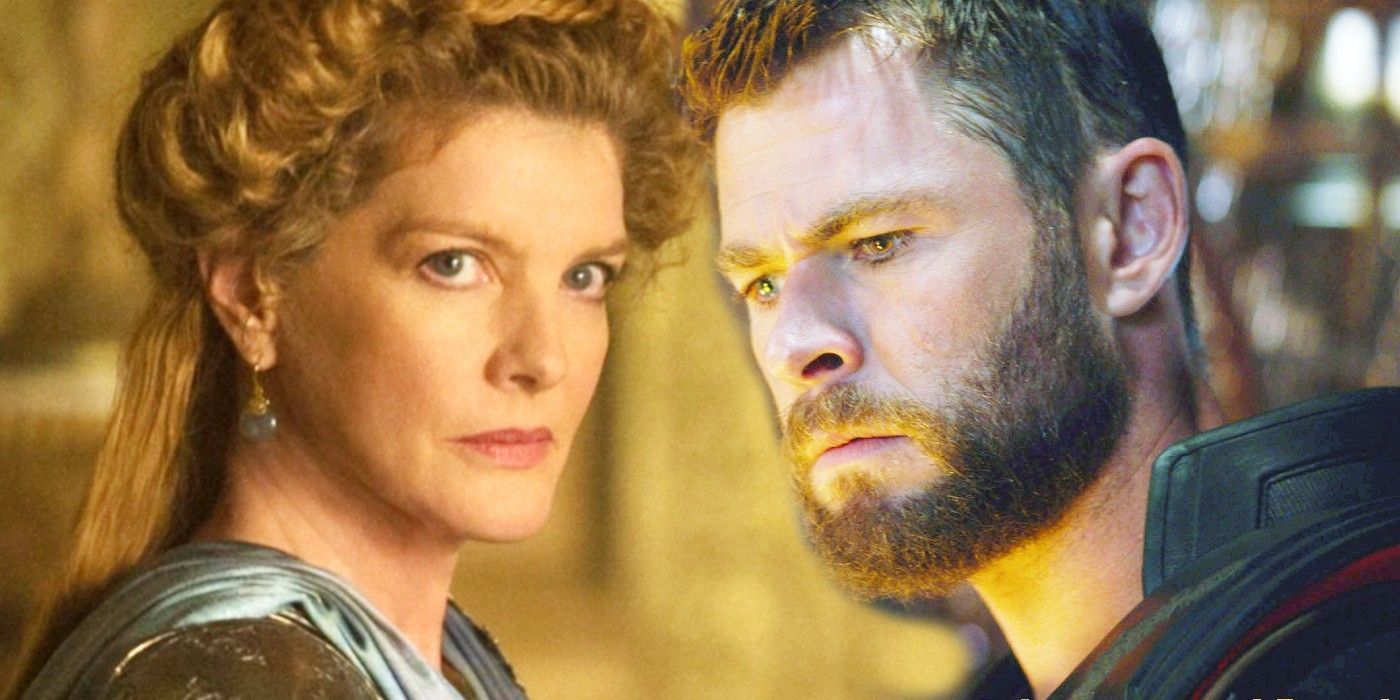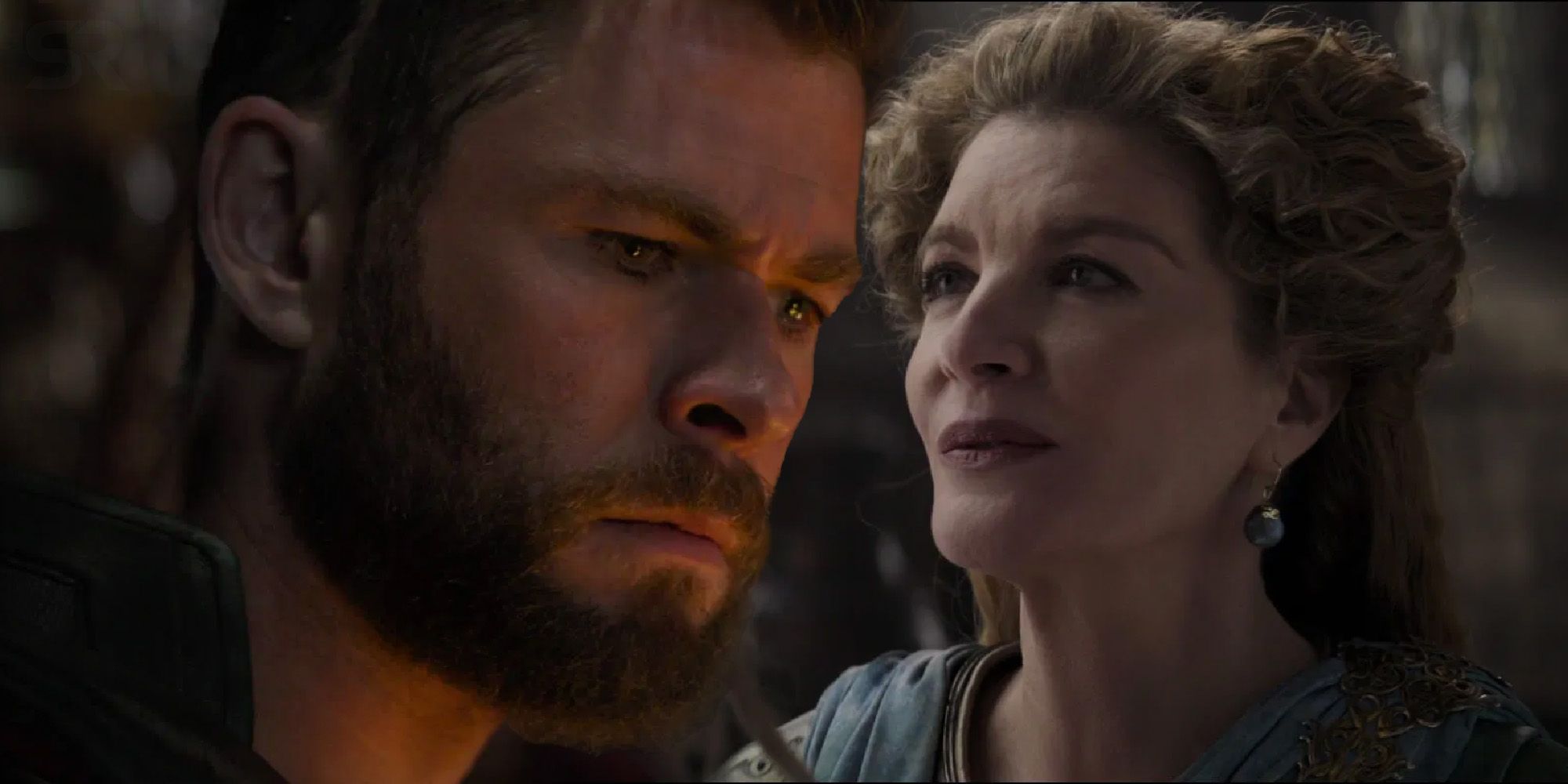
WARNING: This article contains major spoilers for Loki episode 1.
Considering new revelations in Loki episode 1, perhaps it really was impossible for Thor to save his mother Frigga during Avengers: Endgame. The Queen of Asgard, played by Rene Russo, was a relatively early MCU casualty, dying at the hands of Malekith while protecting Jane Foster in Thor: The Dark World. However, during Avengers: Endgame's time heist sequence, in which a ragtag group of Avengers ventured into the plots of the MCU's previous films (including Thor: The Dark World), Frigga made an unexpected return.
What's more, a time-displaced Thor traveled back in time to the very day his mother was killed, adding to his own ample inner turmoil. At one point in their conversation, Thor tries to tell his mother about her future but she cuts him off. "You're here to repair your future, not mine," she says. "But this is about your future," Thor responds, before Frigga counters, "And it's none of my business." The scene from Avengers: Endgame gave Thor and Frigga's relationship much-needed closure while also showing Frigga's wisdom that most futures are immutable.
Yet, clearly, she doesn't think all futures are set in stone. It has always been a little strange that Frigga seems pretty unconcerned with the ramifications that could come from future Thor and his fellow Avengers digging around various timelines to collect Infinity Stones. This attitude is echoed by Judge Ravonna Renslayer in Loki episode 1's court scene. When the God of Mischief wonders why his Tesseract-enabled escape from the events of Avengers: Endgame led to the Time Variance Authority's interference while the heroes' time-meddling remains unchecked, Renslayer explains that, in accordance with the Sacred Timeline, the time heist was always meant to happen.

If, as Loki episode 1 explains, the TVA is really responsible for maintaining the "proper" timeline, it makes sense that Frigga's death really was unavoidable. Considering how the tragic event shaped Thor's life and hero's journey, it is possible that, had the future Thor somehow saved her during the time heist, the TVA would have swooped in to put that timeline back on track. In truth, Frigga's death in Thor: The Dark World has always veered into dangerously close to the "fridging trope," an all-too-common narrative phenomenon in which female characters are killed or depowered in order to motivate male heroes. However, if there is a larger picture that Frigga was somehow aware of - say, the existence of a Sacred Timeline and the devastation that could come if the events within the MCU ventured too far from it - it could ultimately help give Frigga's death greater agency and purpose.
Frigga's more complete understanding of the Multiverse and the existence of multiple timelines is all the more likely because she was canonically raised by witches. The MCU has increasingly linked its Multiverse with sorcery - first with Doctor Strange in Avengers: Infinity War when he peeked into millions of alternate realities and later with Scarlet Witch, who was hinted to be a "Nexus being" in WandaVision. Since two magic-wielders will come together in the conspicuously titled Doctor Strange in the Multiverse of Madness, it seems as though Loki will help establish the rules when it comes to playing in Marvel's new universe-traversing sandbox. It would be immensely satisfying to learn that Frigga, a long-living sorceress with a deep knowledge of the universe, was privy to the inner workings of the Multiverse all along.
Loki episode 1 has set up new and lofty questions concerning alternate universes and the motivations of the TVA's mysterious Time-Keepers. However, since the first chapter took time to revisit the day of Frigga's death - an event already retrodden in Avengers: Endgame - it makes one wonder if it's possible that more information will come to light in regards to her heroic sacrifice. Time will tell.
Loki releases new episodes every Wednesday on Disney+.
from ScreenRant - Feed https://ift.tt/3grpeVn

0 Comments